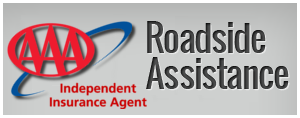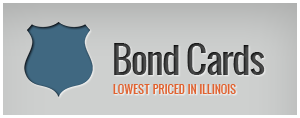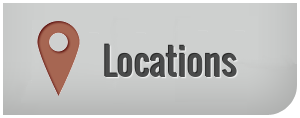Click on the letters below to jump to the insurance terms beginning with that letter.
A, B, C, D, E, F, G, H, I, J, L, M, N, O, P, R, S, T, U, V,
Actual Cash Value
You’ll see this term in an auto insurance policy if you ever file a claim. Actual Cash Value is the original value of your car, minus the amount of depreciation since the purchase date. Insurance companies will only reimburse you up to the Actual Cash Value for property damage claims.
Adjuster
An adjuster is the person who investigates and settles auto insurance claims for the insurance company. This is different from a public adjuster, who negotiates with the insurance company on behalf of the policy holder, and takes a percentage of the claim settlement.
Agent
There are two types of agents: Independent Agents and Direct writers. A direct writer represents only one insurance company. An independent agent represents multiple companies and can compare your quote from each company to find you the lowest rate. Public Insurance Agency is an independent agent.
Application
The form you fill out when requesting insurance. The application asks for information about the prospective policy holder. You can fill out your application online in minutes. To start, just enter your zip code at the top of your screen.
Benefit
A benefit is the amount paid by an auto insurance company to you or your beneficiary when you file an auto insurance claim.
Bodily Injury Liability Coverage
Bodily injury liability coverage protects you if you are held responsible for injuring someone in a car accident.
This coverage helps pay for medical expenses and lost wages of a person that you injur in an accident. Bodily injury liability may also help pay for a lawyer to represent you in court if you are sued.
The minimum limits for bodily injury in Illinois are $20,000 per person injured up to a maximum of $40,000 total for the accident. More information on insurance coverage can be found on our Auto Insurance Coverage page.
Business/Commercial Use
This classification means that you mainly use your car for business purposes (such as sales, service, and delivery calls) or work-related errands (like trips to the bank or post office), and other work-related driving. Commuting to and from work is not considered business use.
Claim
An auto insurance claim is a policyholder’s request to be reimbursed for a loss that’s covered by car insurance. See Understanding the Different Auto Insurance Coverages for information on what is covered under each type of insurance coverage.
Collision Coverage
Collision coverage helps pay for auto repair or replacement costs if your car hits another vehicle/object or if your car rolls over.
The maximum amount paid for repair or replacement is the Actual Cash Value of the car, minus your deductible. Deductible can be $250, $500, or $1000. $500 is the most common choice.
Commuting
If you primarily use your car for commuting, this means that you mainly use the car to drive it to and from work or school.
Comprehensive Coverage
Comprehensive coverage helps pay for damage to your car resulting from fire, certain natural disasters, falling objects, and vandalism. Theft’s also covered.
The maximum amount paid for repair or replacement is the Actual Cash Value of the car, minus your deductible. Deductible can be $250, $500, or $1000. $500 is the most common choice
Continuously Insured
The length of time that you’ve been continuously insured by one or more insurance companies without a lapse in your auto insurance coverage.
A lapse in coverage is when your policy is cancelled and you fail to make the payment within 30 days. After 30 days your policy will need to be rewritten and started from scratch.
Deductible
For some types of auto insurance coverage, you’re asked to choose a deductible. A deductible is the amount of damages you agree to pay before your insurance kicks in. Higher deductibles have a lower premium, but it also means that you will have to pay more for repair or replacement when you file a claim.
Deductible are typically $250, $500, or $1000. $500 is the most common deductible chosen.
Declarations
The Declarations page of your auto insurance policy summarizes the factual information essential to your auto insurance coverage:
- Policyholder name and address
- Type(s) of vehicle(s)
- Type of coverage for each vehicle
- The limits of each coverage and their deductibles
- The cost of each coverage
- Other applicable information to the policy
Defensive Driver and Driver Improvement Courses
These courses consist of defensive driving training for drivers of all ages as well as “mature driver safety courses” intended for drivers age 55 and over.
Discounts may be available for drivers who have completed such courses.
Depreciation
Depreciation is the decline of your car’s value due to age, wear and tear, or obsolescence.
Effective Date
The effective date is the date your auto insurance coverage begins. Typically, the effective date will be the day after you purchase a policy.
Emergency Roadside Service
An optional coverage that provides 24 hour service for emergency roadside service, delivery of supplies (fuel, oil, etc.), battery service, tire change, mechanical breakdown, lockout service, and towing.
Endorsements
An endorsement is any change made to your original insurance policy. Changes most often include adding and/or removing a driver or vehicle, change of address, adding or removing coverage, etc…
Exclusions
Exclusions are situations that are not covered by a given auto insurance policy. Specific exclusions are listed in your auto insurance policy. For example, an excluded driver may be someone in your household that does not drive your car.
Full Coverage Auto Insurance
Full coverage is a term used to refer to an auto insurance policy that has Comprehensive and Collision cover, in addition to the mandatory liability coverage.
Garaging Location
The garaging location is where your insured car is parked most of the time. This location is usually indicated by the ZIP Code of the policyholder’s primary residence. If you normally keep your car parked in a different location than your primary residence, you must notify your agent. It could affect your rates.
Homeowners Insurance
If your car is vandalized or stolen, your homeowners insurance may cover items stolen from your vehicle. Notify your agent immediately to discuss the best way to file your claim.
Insured
The insured is an individual covered by a given auto insurance policy.
Judgment
A judgment is a final decision rendered by a court of law. The judgment will decide who is responsible to pay for any damages.
Liability
Liability is broad term for legal responsibility. If you run a stop sign and hit a car, you may be found liable for the damage done to the other car.
Liability Coverage
Liability coverage protects you from having to pay for damages and injuries that you cause to another person in an accident. In auto insurance, Bodily Injury and Property Damage are the two main types of liability coverage.
Limits
Limits are the maximum amount an insurance company will pay for a covered loss. The minimum limits in Illinois are:
- Bodily Injury (BI)– The minimum required limits for BI are $20,000 per person injured and $40,000 total per accident.
- Property Damage (PD)– The minimum required limit for PD is $15,000 per accident.
- Uninsured Motorist Bodily Injury (UM)– The minimum required limits for UM are $20,000 per person and $40,000 total per accident.
Medical Payments Coverage
This auto insurance coverage pays for medical and funeral expenses if you or your passengers are injured or killed in an accident. It also covers you and your family members if hit by a car while walking or riding in another car. Medical payments pay even if you cause the accident.
Motor Vehicle Report
A Motor Vehicle Report (MVR) provides information on your driving record, such as accidents and moving violations.
Named Peril
Damage to you personal property and belongings inside your home is covered on your homeowners insurance policy if caused by the following:
- Fire and Lightening
- Windstorm and Hail
- Frozen Plumbing
- Weight of Snow and Ice
- Damage to Building by Water Seepage from Roof
- Accidental Overflow of Plumbing Fixtures
- Glass Breakage
- Sudden Smoke Damage
- Falling Objects
- Damage by Vehicle and Aircraft
- Explosion
- Legal Defense for Personal Liability
- Liability, Medical, and Property Payments to Others
- Damage to Building by Spillage of Chemicals
- Theft
- Vandalism
- Riot and Civil Commotion
Open Peril
Term used in property insurance that describes the breadth of coverage provided under an insurance policy form that insures against “any risk of loss” that is not specifically excluded. For Homeowners insurance, this means that damage done to your house, due to any cause, is covered unless that cause is specifically excluded on your policy.
Pleasure Use
If you use your car for pleasure, this means that you typically drive it for fun, with no regular commuting or business use.
Policy Expiration Date
Your auto insurance policy’s expiration date is the date when auto insurance coverage ends if your auto insurance policy isn’t renewed. The expiration date can be found on the Declarations page of your auto insurance policy, on a proof of insurance card, or on you renewal notice.
Policy Term
A policy term is the length of time that you insurance policy is valid. A policy can be purchased for either 6 months or 12 months.
Primary Driver
The primary driver is the person who drives a car most frequently.
Primary Use
How the car is typically used. Auto insurance companies usually classify primary use as commuting, business/commercial, or pleasure use.
Property Damage Liability Coverage
Property damage liability coverage protects you if you are held responsible for damaging someone else’s property in a car accident.
This coverage helps pay for any damage you cause to another person’s property (a car, fence, house, etc…) in an accident. This coverage may also help pay for a lawyer to represent you in court if you are sued.
The minimum limit for property damage liability insurance in Illinois is $15,000. This type of coverage is mandatory in Illinois. More information on insurance coverage can be found on our Auto Insurance Coverage page.
Rental Car Reimbursement
Rental car reimbursement is an optional coverage that helps pay for a temporary rental car while your car is being fixed.
SR22
An SR22 refers to the document that shows proof of Financial Responsibility Insurance. SR22 insurance is required for a number of reasons, but the 2 most common reasons are when you are involved in an accident or pulled over for a traffic violation and fail to provide proof of insurance. If you fail to provide proof of insurance your driver’s license and/or license plate may be suspended. You will need to pay a fee to have them reinstated and submit proof of a current insurance policy before you can drive again.
If you need SR22 insurance, take a look at our Frequently Asked SR22 Questions and our SR22 Information page, then call a Public Insurance agent. We will find you the lowest rates on SR22 insurance and have you back on the road in no time.
Towing Coverage
Towing is an optional coverage, and pays a fixed amount toward towing if your car breaks down or if it’s disabled in an accident.
Uninsured Motorist Bodily Injury Coverage
Uninsured motorist bodily injury coverage is mandatory in Illinois, along with Bodily Injury and Property Damage liability coverage.
This coverage helps pay for your medical expenses, lost wages, and other general damages when you or your passengers are injured in an accident caused by a driver who has no car insurance. Uninsured motorist coverage also pays for injuries sustained in hit-and-run accidents. Unlike Bodily Injury and Property Damage liability coverage, Uninsured Motorist Bodily Injury pays for injuries that happen to you.
The minimum limit for Uninsured Motorist Bodily Injury coverage in Illinois is $20,000 per person injured and up to a maximum of $40,000 total for the accident. This type of coverage is mandatory in Illinois. More information on insurance coverage can be found on our Auto Insurance Coverage page.
Uninsured Motorist Property Damage Coverage
Uninsured motorist property damage coverage is available in some states, where it’s often mandatory.
This kind of auto insurance coverage protects you if your vehicle is damaged in an accident or hit-and-run caused by a driver who has no car insurance.
Uninsured Motorist Property Damage has a limit of $15,000 per accident and is subject to a $250 deductible. You can’t have this coverage if you already have Collision coverage.
Vehicle Identification Number (VIN)
The VIN, short for Vehicle Identification Number, is the unique 17-digit number found on every car. The VIN contains the vehicle’s serial number, as well as abbreviations for the make, model, and year.
The VIN appears on your vehicle registration card. It’s also engraved in your car, near the base of the windshield on the driver’s side dashboard and/or on the edge of the driver’s side door.
You do not need your VIN number to get a quote from Public, but you will need it to purchase an insurance policy.





